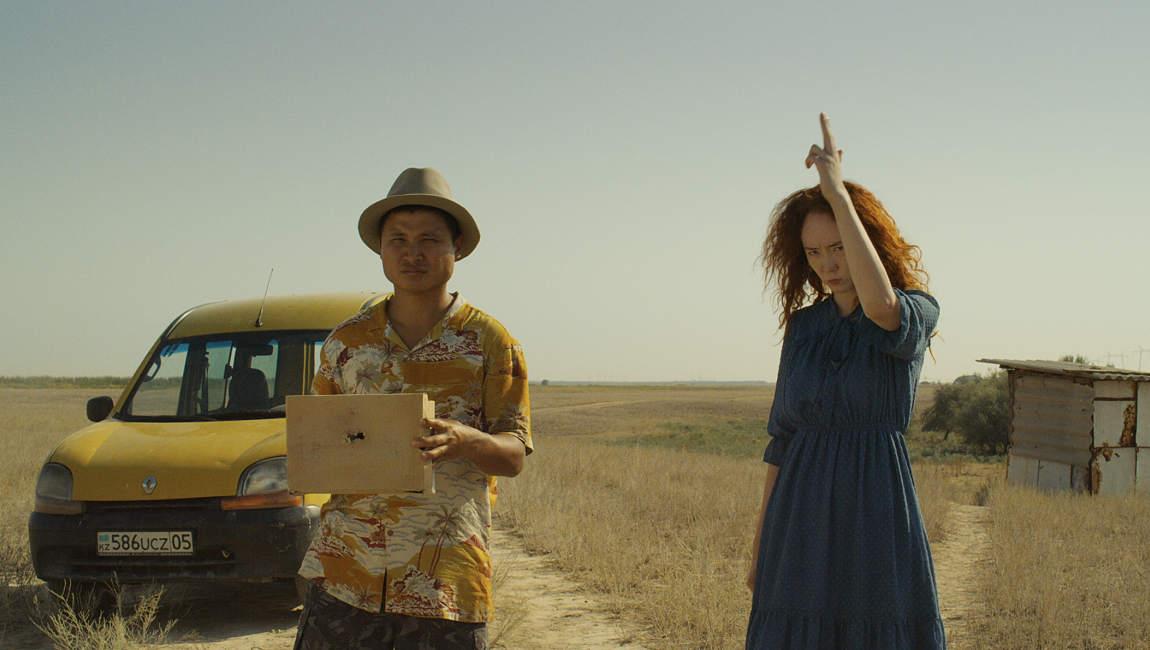More poodle than Wolf, Biancheri’s film is a frustratingly tame and conservative treatment of potentially fascinating material.
Ten years ago, a film like Wolf would have made headlines for its transgressive premise alone — never mind that the conclusions one might have drawn from it weren’t exclusively consigned to moral outrage. With the emergence and evolution of shock cinema in the late noughties toward maximalist provocation, bigger meant better, and good taste (within this eclectic realm of gorehounds and horror freaks) consequently necessitated bad flavors. Taboo conceptions of sex, expressed via ascending iterations of medical disorders, became the genre’s modus operandi as the days of video nasties and violent censorship made way for the permissive catharsis of saturation: a contemporaneous viewer of Tom Six’s The Human Centipede, for example, would generally appraise predecessors like Salò or The Evil Dead with academic disinterest or, at most, retrospective curiosity. And Wolf, in theory, would have provided excellent fodder for religious fundamentalists and furry subcultures alike; for the former, its unabashed examination of species dysphoria, a hitherto clinical and comparatively rare phenomenon, spelt the death knell of respectable Western society, whereas the latter’s ostensible embrace would complement the rising cultural (and online) awareness of kink and fringe identities, short of open acceptance.
But instead of howling at the moon and receiving a wolfpack’s chorus in return, Nathalie Biancheri’s sophomore effort appears fated for relative oblivion, slinking back into the shadows after its Toronto premiere and engineering little fanfare beyond provoking the occasional puritan or obsolete boomer. Its plot and presentation are to some degree intriguing: set in a specialized clinic for patients of species dysphoria (the condition where one believes themselves to be of another species, but trapped in a human body), Wolf follows Jacob (George MacKay), a taciturn and muscular teen who identifies as a wolf and resists the clinic’s attempts to neuter this identification. His fellow patients, including one Wildcat (Lily-Rose Depp), undergo incessant conversion therapy in cocktail form, blending cutting-edge tech progressivism with caged humiliation at the hands of the Zookeeper (Paddy Considine), a stereotypical evil scientist who airbrushes his latent sadism with a cosmetic desire to initiate well-intended reform. Over time, Jacob and Wildcat fall in love, plot their escape, face their inner demons, etc., their every stab for freedom quelled by the glassy anesthesia of the clinic’s four walls and quashed by the Zookeeper’s steely wrath.
Most viewers will have little trouble recognizing shades of Yorgos Lanthimos in Wolf’s frigid aesthetics and topical absurdism as apparent talking-points in service of the film’s half-satirical, half-dystopian lens, and as far as form is concerned, Biancheri proves remarkably competent at staging disquieting sequences à la Dogtooth or The Lobster (both happily zoocentric in their choice of metaphors). Where Wolf loses steam is precisely in its unwillingness to further engage with its premise, remaining content with superficial commentary and moral platitude on the usual suspects that plague debates on identity politics: nature versus nurture, social conformity, institutional brutality, and so on. The howling and yowling quickly fade into background noise, sustaining a stale conceit partly in vain but also partly buoyed by material determination. Biancheri’s clearly more infatuated with the physicality of her characters, boxing them at their most primal into sweaty and tactile close-ups; MacKay, in particular, succeeds in a delicate balancing act between stoic ego and feral id. Ironically, a film this invested in touting its liberal disposition toward tolerance operates conservatively, imbuing its narrative initially with the tantalizing scent of freedom but then backtracking into indie convention. Depp’s character lacks a meaningful backstory, the rest of her ilk aren’t accorded much of an internal psychology, and the greatest pity lies with the film being mistaken for genre exploitation when its intentions are anything but. The hardiest wolves walk alone.







